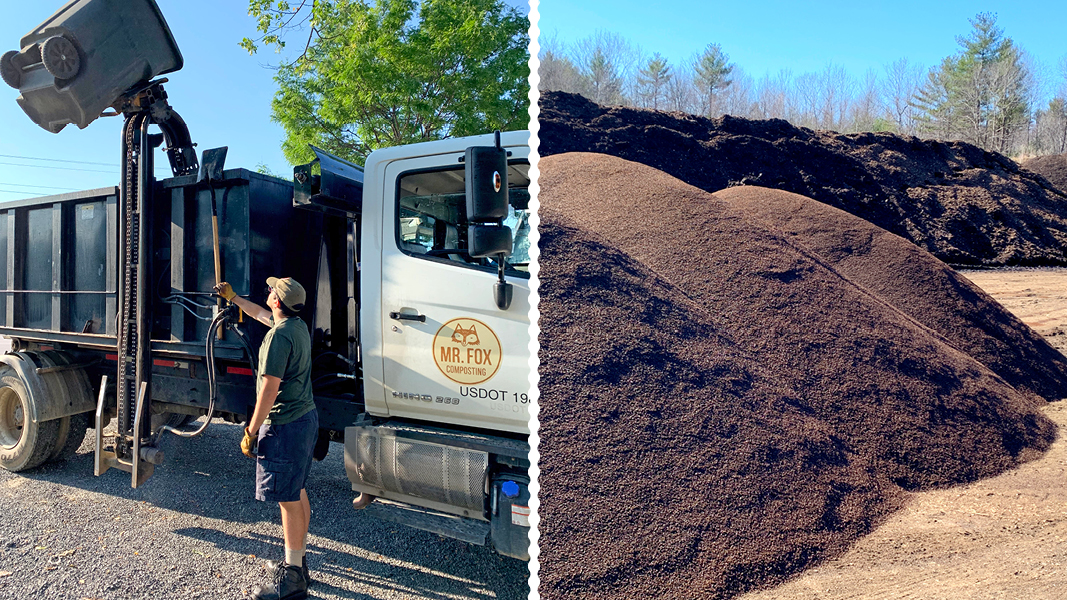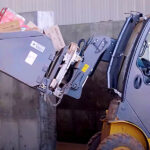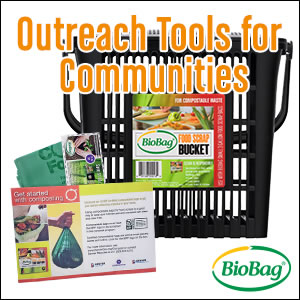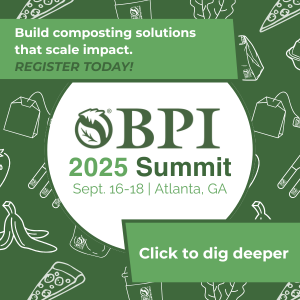Photos courtesy of Mr. Fox Composting, a food waste collection and composting company based in Portsmouth, New Hampshire.
The New Hampshire State Legislature passed HB300 in June, a bill that bans “any person” generating one ton of food waste per week or greater from disposing of “such waste” in a landfill or incinerator — if an alternative facility authorized to manage food waste consistent with the provisions is located within 20 miles of the point of generation and the alternative facility has adequate capacity to accept the food waste. The disposal ban, which goes into effect on February 1, 2025, was passed as part of the state budget. It includes $1 million that will go into the state’s solid waste management fund; $500,000 will be used for grants for businesses or municipalities that develop infrastructure to keep food waste out of landfills. The New Hampshire Department of Environmental Services (NHDES) estimates that approximately 165,000 tons of food waste were disposed in 2020 — about 24% (based on U.S. EPA calculation of national food waste disposal) of the 688,000 tons of municipal solid waste disposed by the state’s residents, businesses, and institutions in 2020.
The new law primarily impacts commercial and institutional food waste generators. Currently, food waste recycling options in New Hampshire are limited to a handful of municipal drop-off sites and private collection services, and several smaller scale composting facilities. In March 2022, NHDES revised its composting regulations to encourage development of more composting capacity in the state. The revised rules enable permit-by-notification facilities to process all food scraps, including meat and dairy. Previously, composting of meat and dairy required a standard permit, which involves a more complicated permitting process compared to a permit-by-notification. The new rules also added two key permit exemptions: one for small-scale food waste drop-off sites and another for community composting facilities. The food waste drop-off exemption allows collection and storage of up to one cubic yard (cy) of food waste (equivalent to roughly 40 5-gallon buckets), enabling food co-ops or other community centers to function as collection points without the need for a solid waste facility permit.













